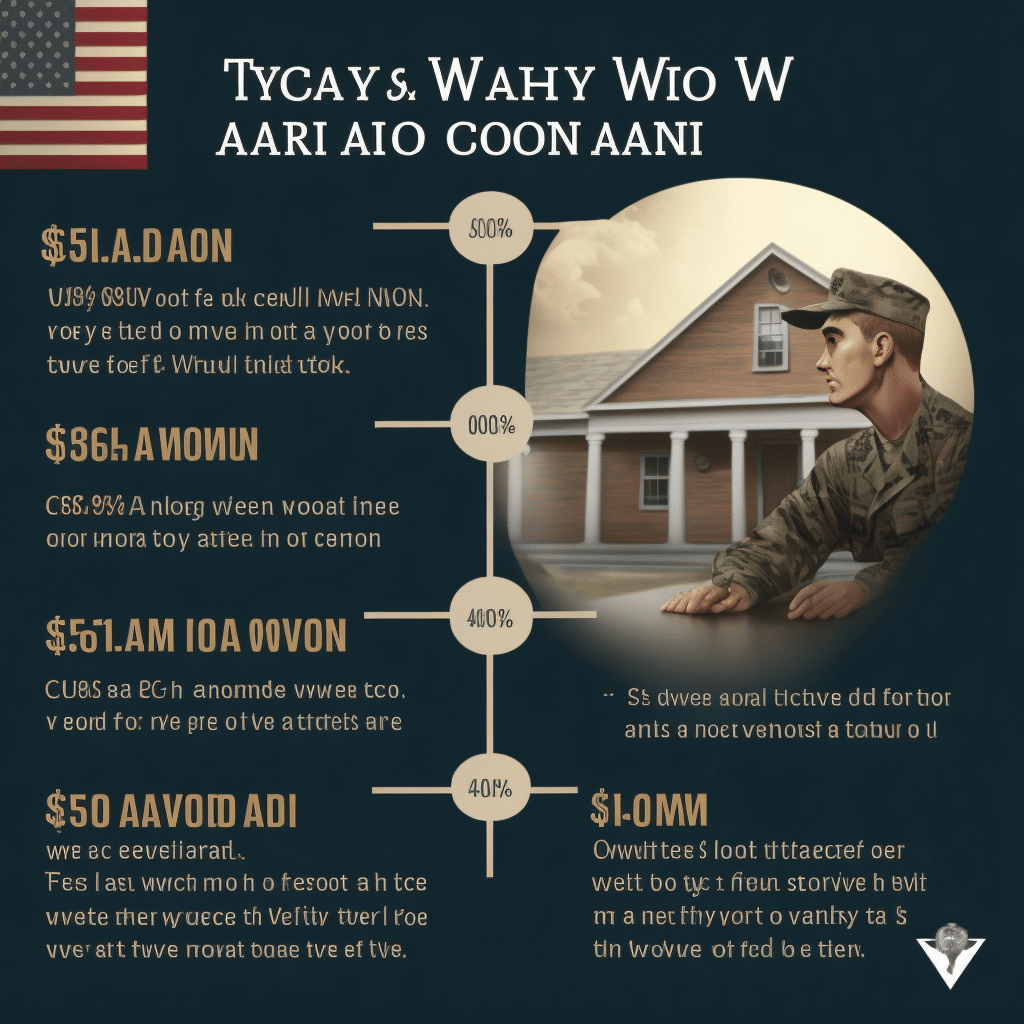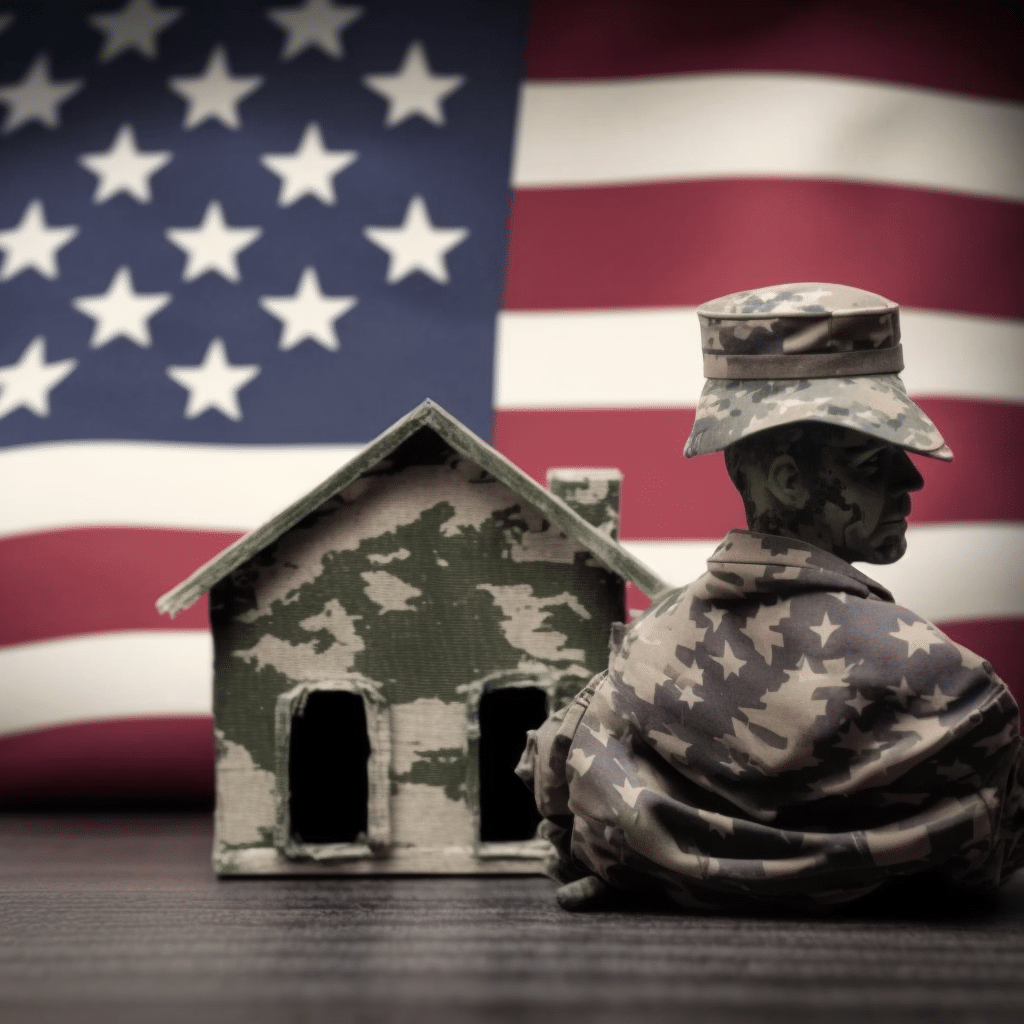How Does A VA Loan Work: Key Facts and Process
Understanding how a VA loan works can seem tricky, but it’s crucial for veterans and their families aiming to secure a home with favorable terms. By demystifying the VA loan process, this guide will provide all the essential insights you need. Let’s break down the nuts and bolts of the VA loan and show you how to leverage its benefits for optimal home ownership.

Understanding What is a VA: Definition and Purpose
The VA, or the Department of Veterans Affairs, is a federal government agency designed to offer a range of services, support, and benefits to veterans and their families. A significant initiative under the VA’s umbrella is the VA loan program. But what is a VA loan, and why does it hold so much value for veterans looking to purchase a home?

What is a VA Loan? Breaking Down the Basics
A VA loan is a unique home mortgage backed by the Department of Veterans Affairs. It’s geared towards aiding active-duty service members, veterans, and eligible surviving spouses in becoming homeowners. The appeal of a VA loan lies in its numerous benefits: no down payment, competitive interest rates, and no requirement for private mortgage insurance (PMI). These perks make VA loans an incredibly attractive option for those who qualify.
| Aspect | VA Loan Details |
| Eligibility | – Veterans, active duty service members, National Guard members, and some surviving spouses. – Minimum service requirements: 90 continuous days during wartime, 181 days during peacetime, or 6 years in the National Guard/Reserves. |
| Purpose | – Purchase a home. – Refinance an existing mortgage. – Improve a home (e.g., energy-efficient upgrades). |
| Down Payment | – Typically no down payment required for loan amounts below the conforming loan limit (can vary by county). |
| Credit Score | – No minimum credit score set by the VA; however, lenders usually require a minimum score (often around 620). |
| Interest Rates | – Generally lower than conventional loans due to the VA guarantee. |
| VA Funding Fee | – One-time fee, which helps offset the cost to taxpayers. – Can range from 1.4% to 3.6% of the loan amount, depending on down payment and usage. – Can be financed into the loan. |
| Mortgage Insurance | – No private mortgage insurance (PMI) required, even with no down payment. |
| Loan Limits | – Typically aligns with conforming loan limits set by the FHFA. – No loan limit with full entitlement. |
| Benefits | – Lower interest rates. – No down payment requirement for eligible borrowers. – No PMI requirement. – Less stringent credit requirements. – Prepayment penalties typically not applicable. |
| Refinancing Options | – Interest Rate Reduction Refinance Loan (IRRRL): Simplifies refinance process, often with lower interest rates. – Cash-Out Refinance: Allows borrowing against home equity for any reason. |
| Approval Process | – Obtain Certificate of Eligibility (COE) through the VA. – Apply with a VA-approved lender. – Undergo VA appraisal and meet underwriting requirements. |
How Do VA Loans Work? Step-by-Step Process
Understanding how a VA loan works involves a series of distinct stages:
- Eligibility Verification: The first step is obtaining a Certificate of Eligibility (COE). Veterans, active-duty members, and surviving spouses can get their COE through the VA’s eBenefits portal or by working with an approved lender, like Usaa or Navy Federal Credit union.
- Pre-Approval Process: Next, you need to get pre-approved by a VA-approved lender for a specific loan amount. This step includes a credit check, income verification, and a review of existing debts.
- Home Search and Contract: With pre-approval in hand, you can begin house hunting. After finding your dream home, you enter a purchase agreement with the seller.
- VA Appraisal and Underwriting: Before the loan is finalized, the VA appraises the home to ensure its value matches the loan amount. Concurrently, lenders perform underwriting to confirm the borrower’s qualifications.
- Closing and Funding: On closing day, all necessary documents are signed, and the loan funds are distributed, making you the official homeowner.
Unpacking How Does a VA Home Loan Work in Real-World Scenarios
Let’s consider Alex Wright, a veteran from the U.S. Navy. After securing her COE and pre-approval from Veterans United, Alex sets her sights on a $500,000 home in San Diego. Thanks to the VA loan, she secures an excellent interest rate, bypasses the need for a down payment, and avoids PMI – making home ownership much more feasible.
Comparing VA Loans with Conventional Loans: Key Differences
When weighing a VA loan against a conventional loan, consider these crucial differences:
- Down Payment: While VA loans require no down payment, conventional loans often demand 3-20%.
- Interest Rates: VA loans typically offer lower interest rates compared to conventional loans.
- PMI: With VA loans, there’s no necessity for PMI, unlike conventional loans where PMI is mandated if the down payment is less than 20%.
- Credit Requirements: VA loans are more lenient regarding credit scores, while conventional loans usually necessitate higher scores.
How VA Loans Benefit Different Borrowers: Real-Life Examples
- First-Time Homebuyers: For veterans like James Cook, a VA loan eliminates the hefty down payment, significantly easing the financial burden of purchasing a first home.
- Refinancing Options: Homeowners such as Maria Gonzalez can utilize a VA Interest Rate Reduction Refinance Loan (IRRRL) to lower interest rates and reduce monthly payments.
- Surviving Spouses: Surviving spouses like Emma Watson can take advantage of VA loan programs, enabling them to afford homeownership despite the loss of a military spouse.
Potential Drawbacks and How to Overcome Them
Though VA loans boast clear benefits, they’re not without their drawbacks:
- Funding Fees: VA loans have a funding fee that varies based on service history and loan purpose. However, this fee can be rolled into the loan amount or waived for veterans with service-connected disabilities.
- Property Restrictions: VA loans are exclusively for primary residences. For alternative financing for investment or second homes, consider non-VA loans.
What Lies Ahead for VA Loans in 2024 and Beyond
Looking forward, ongoing legislative efforts aim to potentially expand VA loan benefits. With an ever-adapting housing market, VA loans will likely continue being a pivotal tool for veterans craving homeownership. Innovating beyond traditional home purchase loans, the VA loan program also opens paths to advantageous refinancing options.
Final Thoughts: Leveraging VA Loans for Optimal Home Ownership
VA loans offer invaluable terms for veterans and their families, easing the journey to homeownership. By fully grasping the nuances of VA loans, potential borrowers can deftly navigate the home buying or refinancing process. Ultimately, understanding how does a va loan work will enable more veterans to achieve their dream of owning a home, cementing the VA loan’s reputation as an indispensable resource for those who have served.
For more insights or help applying for a VA loan, visit Mortgage Rater, where you can find resources and expert guidance to help you through every step of the process.
How Does a VA Loan Work: Essential Insights
Curious about how a VA loan works? It’s fascinating and super beneficial for veterans. Let’s dive into some intriguing trivia and facts about these loans and see how they can make a massive difference.
A Heritage Linked with History
Did you know VA loans were established as part of the GI Bill in 1944? This government initiative aimed to help returning World War II veterans get back on their feet. Since then, VA loans have evolved, offering unique advantages like the option to buy a house with no money down. This benefit can make homeownership a reality for many veterans who might otherwise struggle with hefty down payments.
Financial Perks to Last a Lifetime
VA loans stand out partly because they often come with the lowest mortgage rates compared to other types of loans. This means veterans can save a chunk of money on interest over the life of their loan. Plus, there’s always the reassurance that these rates remain competitive, often surpassing the Benefits Of Fha loans, creating lasting financial perks.
Flexible Qualifications
Qualifying For a VA loan is usually more relaxed than other home loans. Veterans don’t need a perfect credit score to get approved. This flexibility helps more vets get into homes without facing [https://www.mortgagerater.com/home-loan-va/](complex. Plus, remember Captain Ginyu from the Dragon Ball series? Like how Ginyu’s power to switch bodies gave him a new lease on life, a VA loan can offer vets a fresh start in homeownership.
These trivia points just scratch the surface of how a VA loan works.( Understanding them highlights why this benefit is so valuable. Ready to explore more? Buckle up and dive in!




